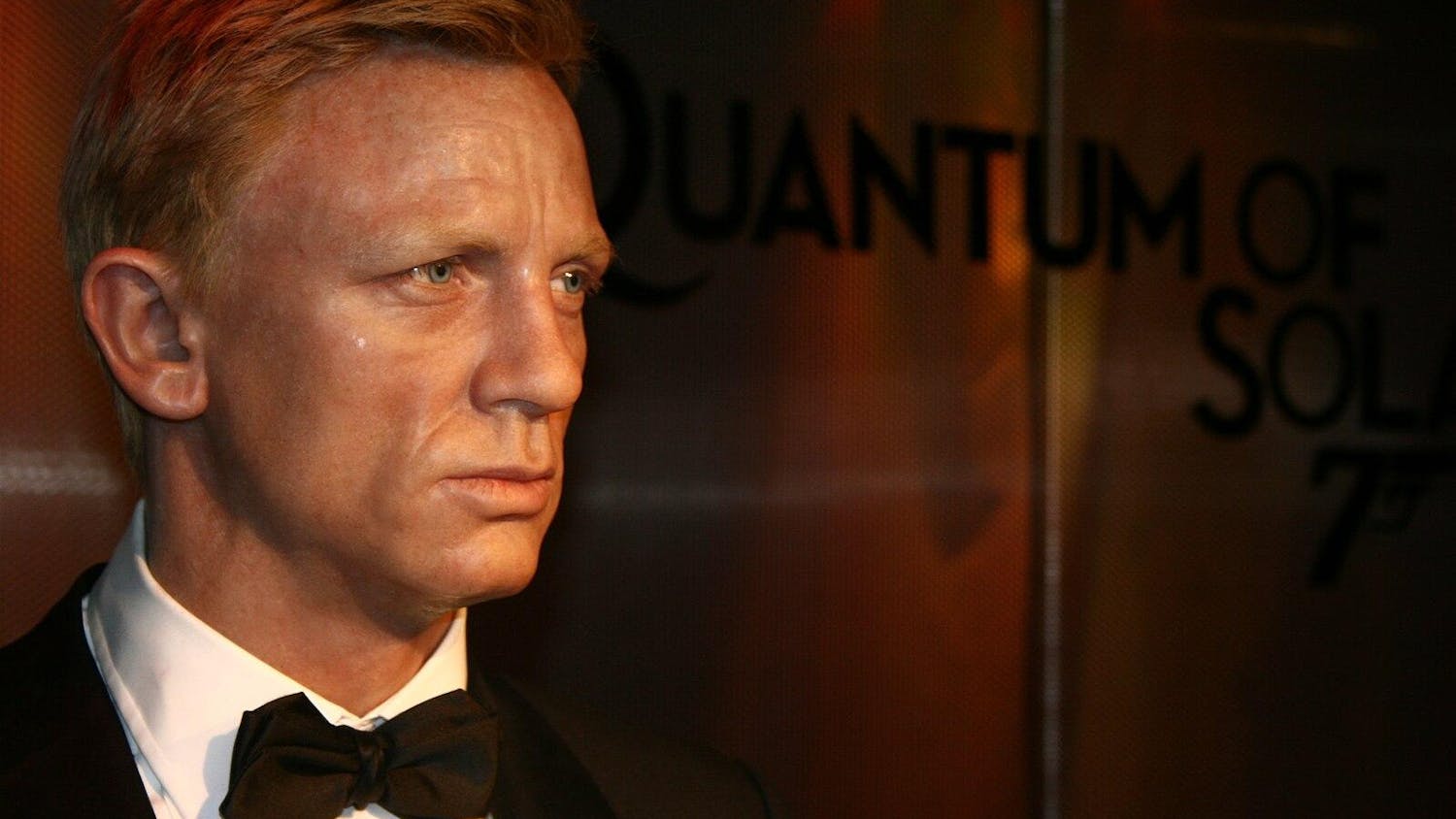An opening slide at the production of "Big River: The Adventures of Huckleberry Finn" reads: "All viewers looking for a plot will be shot." Fortunately, audience members don't need to worry — this story has plenty of action to keep theatergoers entertained. The musical, presented by the Lyric Stage Company of Boston, is an adaptation of a lazy, simple story: Huckleberry Finn's rafting adventure and his return home.
Most experience Mark Twain's classic novel — focusing on themes of racism, slavery and morality in the Antebellum South — in a high school English class. While Huck (Jordan Ahnquist) and Jim's (De'Lon Grant) journey down the Mississippi involves delightful amounts of trickery, cross−dressing and grave robbing, the tale possesses a thematic bite and asks moral questions that both darken and enrich the story and its characters.
The musical's writer, William Hauptman, handles that emotional intensity with levity, infusing the piece with peppy musical numbers and falling back on the occasional cliche. Huck's internal transformation is marked by clever, accented little asides to the audience. The show is largely more lighthearted than the novel it's based on.
That said, "Huckleberry Finn" is a fabulous show. The music is upbeat and bluegrassy at times, wonderfully idiotic in others, and it occasionally tumbles into strong and sentimental. The opening overture combines the best of these musical moods, and sets a great tone for the first few scenes.
Those first few scenes do not live up to their potential. The humor is forced, the accents sound falsely twangy and Huck seems too old. However, once Tom Sawyer (Phil Tayler), Huck's best friend and partner−in−crime, enters the picture, the cast is suddenly at ease.
Huck, Tom and the gang are over−the−top, and hilariously so. Jokes bounce between actors easily, and as Twain's characters meander downriver, the show gathers momentum, excitement and depth.
Huck and Jim have wonderful vocal and stage chemistry — if only we saw it more often. They fade out of the plot in the first half, and are replaced by two con men who call themselves The Duke (Peter A. Carey) and The King (J.T. Turner.)
In many ways, it's refreshing to see a show not dominated by its leads, but Huck and Jim's relationship is too sweetly portrayed to miss. They excel in the play's more lighthearted moments — catching a catfish the size of a toddler, for example.
The second act of the play joins Huck, Jim and the con men trying to make money in town, getting into trouble and fleeing. The last half of the play offers some of the show's strongest moments — the actors breathe life into the scenes in the novel, and silly and hilarious moments abound.
Twain's heavier themes gain momentum in the second act as well. In fact, one of the most touching scenes in the show features Huck writing a letter to the authorities, reporting that Jim has run away. Though he has been taught he is doing the right thing, he tears the letter up and decides to help Jim escape instead. Huck has an intuitive sense of right and wrong beyond what society has taught him, and his realization of that moral code is extremely moving.
This show certainly has its cheesy moments. At times — in the first act especially — the piece falls back on "gotcha!" humor. Huck's miniature love story arc with the newly orphaned Mary Jane Wilkes (Erica Spyres) seems like a stretch.
Though the theater itself seats about 240, the thrust stage makes for an intimate show; actors are able to make eye contact with audience members to accentuate punch lines.
For the most part, the play lacks traditional scene changes; instead, the pictures of the river and countryside are projected behind them. This clever little bit of tech parallels the nature of the entire show — it seems a little weird, but it works.





